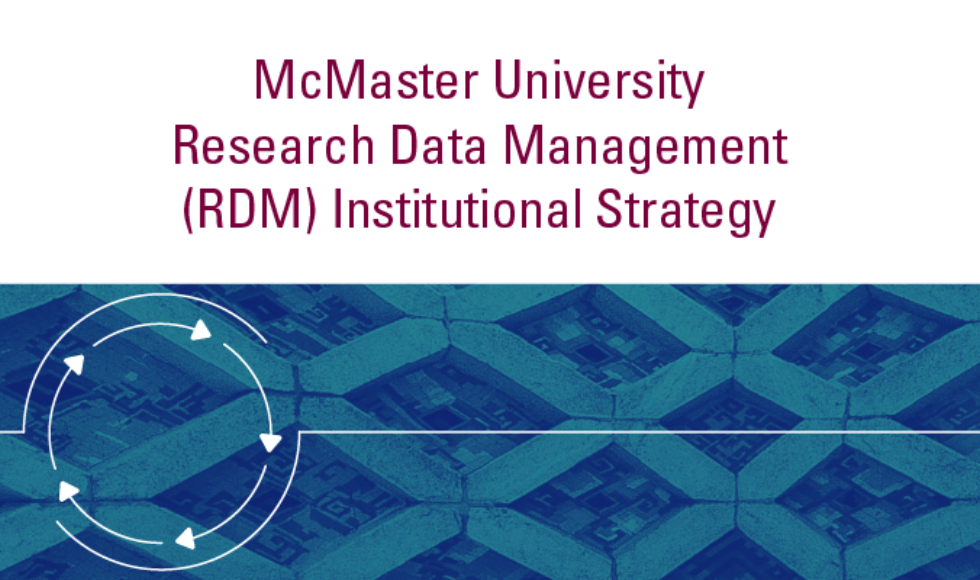McMaster launches Research Data Management strategy

BY Tina Depko, McMaster University Library
April 25, 2023
After two years of engagement, exploration, and evaluation, McMaster University’s first Research Data Management (RDM) Institutional Strategy is ready.
The strategy was created through the contributions, writing, input and feedback of hundreds of members of the McMaster research community under the leadership of McMaster’s Institutional Strategy Working Group.
The result is a guiding framework and a growing suite of related services that will support McMaster researchers in planning for and managing their research data, which are used as primary sources to support a wide range of activities, including technical and scientific inquiry, research, scholarship, and creative practice.
“Developing McMaster’s RDM strategy was a significant undertaking, and the quality of the finished product speaks to the shared commitment of the working group and our research community to create a vision for research data management at the institution,” said the group’s chair, Jay Brodeur, associate director, Digital Scholarship Services at McMaster University Library.
“Through this strategy, we’ve set a course for building the resources, services, and community that support good RDM practices to the benefit of researchers, scholarly and global communities.”
The engagement opportunities throughout the past two years included an online survey, focus groups, a maturity assessment and a town hall meeting.
In-person meetings with 32 departments were also held from fall 2022 through winter 2023 to gather feedback on both the strategy and the related Digital Research Commons Pilot.
McMaster’s new strategy supports good RDM practices, in turn increasing research visibility, aligning with evolving funder requirements, building new collaborations, enabling verification of research results, and supporting a culture of accessible and reproducible research.
The published strategy satisfies the first requirement of the Tri-Agency RDM Policy, while also preparing McMaster researchers to meet increasing funder, journal and disciplinary expectations for data management plans at the outset of projects and data deposit at their conclusion.
The strategy has been approved by the working group, the Research Information Technology Committee, and the Office of the Vice-President, Research.
The strategy is of the utmost importance to the research enterprise, says Karen Mossman, vice-president, Research, a key supporter of the RDM strategy’s creation.
“Research data management is critical to the success of McMaster’s research community and an important responsibility shared by everyone who works and studies at McMaster,” says Mossman.
“This institutional RDM strategy will improve researchers’ access to resources and support on RDM best practices, so that they may continue to conduct, protect and share their impactful work. Thank you to all those who contributed their time and expertise to the development of this shared vision.”
Now that the strategy has been established, the implementation process is underway.
A new RDM Strategy Implementation Committee will lead more formal and collaborative operational activity development during the first year of strategy implementation. Anyone interested in participating in this next stage can email McMaster’s RDM team.


